Following the February 1 coup in Myanmar, the response of the 10-nation Association of Southeast Asian Nations (ASEAN), which includes the country, has come under a microscope. All sorts of diatribes have been made against the bloc, which includes a mix of regime types. Political analysts and pundits have faulted the non-military organization’s time-tested practices of non-interference, non-use of force, and pacifist means to end conflicts. They often belittled the time-consuming process of decisionmaking.
It took six months for ASEAN to get its act together following the coup, which has had devastating results across all dimensions, with more than 1,000 killed, 5,900 arrested, and the collapse of the country’s economic, social, and public health systems. Now, the COVID-19 pandemic has become one of the biggest threats to Myanmar, with medical experts warning that without any quick and sustained assistance, half the population of 54 million could be infected.
Earlier this month, ASEAN leaders picked Brunei’s Second Foreign Minister and current ASEAN chair Erywan Pahin Yusof as the special envoy following weeks of negotiations. Indonesian Foreign Minister Retno Marsudi was insisting on her candidate, former Foreign Minister Hassan Wirajuda. Thailand favored the former vice foreign minister and former ambassador to Myanmar, Virasakdi Futrakul. Other ASEAN members also put forward their candidates for consideration.
What complicated the special envoy’s selection was whether the consent of Myanmar’s new military regime should be considered. Picking either Wirajuda or Virasakdi would have far-reaching repercussions for the future action plans to end the violence in Myanmar. At the very least, the military regime’s cooperation is indispensable because it currently controls access to the country. Brunei, as ASEAN’s current chair, faced a dilemma in making a decision due to the lack of consensus. For three months, Erywan as ASEAN chair consulted extensively with ASEAN colleagues over the best choice of candidate. All along, Myanmar’s junta preferred to work with Virasakdi. This further hardened Jakarta’s position, which regarded that choice as a sop to the cruel military regime, which continues to hunt down opposition groups and protestors.
On August 4, Brunei’s Sultan Hassanal Bolkiah picked his second foreign minister as the envoy, ending the squabbling within ASEAN. The military regime in Myanmar also accepted the choice after some ASEAN members asserted pressure by threatening not to recognize Myanmar’s participation at the annual conference. The special envoy is now working on action plans with implementation timelines as mandated in the five-point consensus agreed by ASEAN leaders on April 24 in Jakarta.
Erywan will select a team of advisors, comprising senior diplomats from across ASEAN. Both Wirajuda and Virasakdi will be in the group, which will also include a senior diplomat from Cambodia, which will take over as ASEAN chair in 2022. Singapore Foreign Minister Vivian Balakrishnan has warned that given the complexity of the situation and conflicting parties, a realistic timeline is needed for the envoy to do his work. The military regime has pledged to hold a general election in two years.
At this juncture, the most pressing issue for the envoy and ASEAN is how to mobilize regional and international efforts to help Myanmar cope with the raging COVID-19 infection rate. For the time being, only miniscule assistance has been given to the people of Myanmar by neighboring countries such as Thailand, China, and India. But a comprehensive and coordinated scheme is urgently needed under the tutelage of ASEAN and its humanitarian and disaster management unit, known as the AHA Center (ASEAN Coordinating Center for Humanitarian Assistance on disaster management). The bloc can draw on its experience with Cyclone Nargis in 2008 when the international community was quickly mobilized to form a tripartite body — ASEAN, Myanmar, and international organizations — to provide humanitarian aid to the affected areas.
The ASEAN Secretariat is also planning an international donor conference for Myanmar. At the annual ASEAN meeting earlier this month, Thailand, which shares a 2,401-kilometer border with Myanmar, proposed this initiative to raise the funds needed for a sustained humanitarian mission for the peoples of Myanmar. The date and venue has yet to be decided. The ASEAN special envoy and his team are also planning to visit Myanmar soon to assess the current situation on the ground.
Erywan made clear that he must have unhampered access to all stakeholders including ousted leader Daw Aung San Suu Kyi, President Win Myint, and Australian economist Sean Turnell — all imprisoned by the junta — as well as to all areas of the country. Throughout the past six months, ASEAN has been urging the military regime to release all political prisoners and foreigners even though this demand was not reflected in the five-point consensus. This endeavor was particularly led by Singapore, Indonesia, and Malaysia.
Despite growing criticism from abroad about ASEAN’s handling of the Myanmar crisis, there remains support from the bloc’s dialogue partners (Australia, Canada, China, the European Union, India, Japan, New Zealand, Russia, South Korea, the United States, and as of earlier this month the United Kingdom), which have backed ASEAN centrality in the international response to the crisis. At the annual ASEAN foreign ministers’ meeting in July, U.S. Secretary of State Antony Blinken also recognized ASEAN’s five-point consensus as an important step forward but he also urged the grouping to speed up its efforts.
So far, the U.S., U.K., Canada, and the European Union have imposed specific sanctions targeting senior officials and companies associated with the Tatmadaw, as Myanmar’s military is called. It is still not clear whether the credentials of Myanmar will be maintained by Suu Kyi’s ousted National League of Democracy government or the interim government under Prime Minister Senior General Aung Hlaing at the annual U.N. General Assembly in New York later next month.
Erywan is expected to visit Naypyidaw soon to meet the junta leaders and other stakeholders to prepare action plans on key issues. These issues include humanitarian assistance, especially for the battle against COVID-19, as well as for displaced persons both inside Myanmar and those along the Thai-Myanmar border who are fleeing violence. Going forward, ASEAN’s relevance and centrality will be tested based on the performance of its envoy. The lack of progress during the past six months has already tarnished the bloc’s reputation and raised concerns about its ability to tackle this quagmire. ASEAN needs to speed up its decisionmaking process and become more assertive to succeed in Myanmar and to meet the broad-based expectations of the international community.
-
Acknowledgements and disclosures
Adrien Chorn provided editing assistance on this piece.
The Brookings Institution is committed to quality, independence, and impact.
We are supported by a diverse array of funders. In line with our values and policies, each Brookings publication represents the sole views of its author(s).

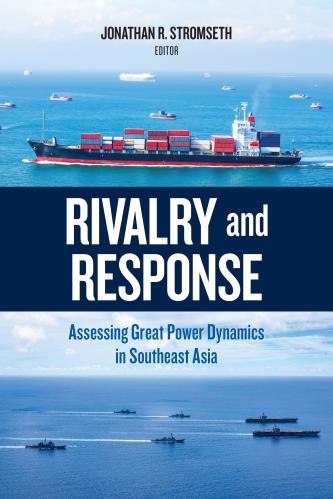
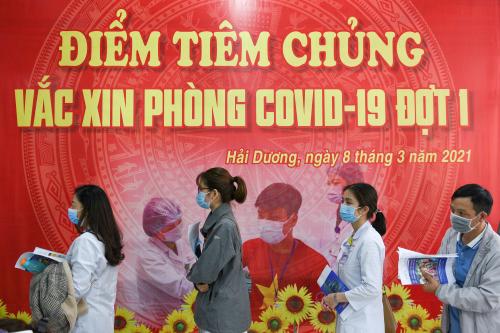
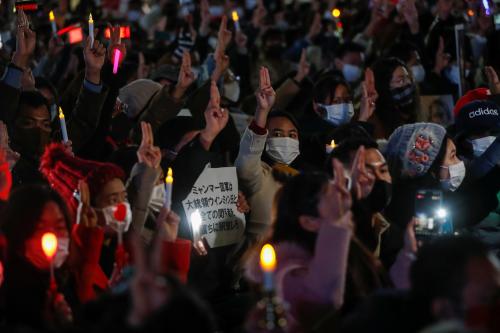
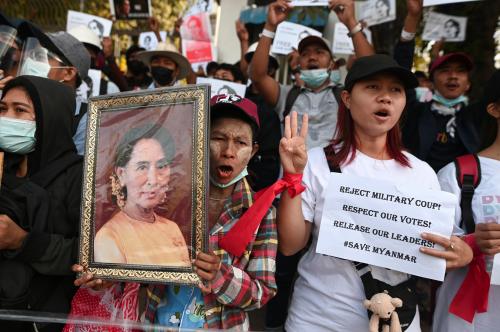
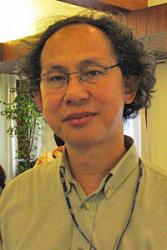
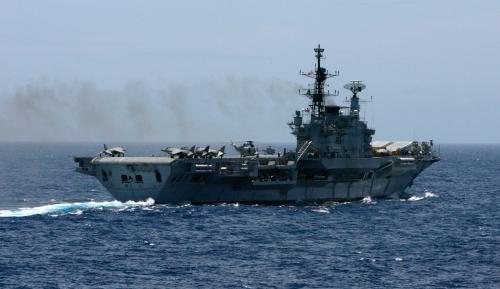
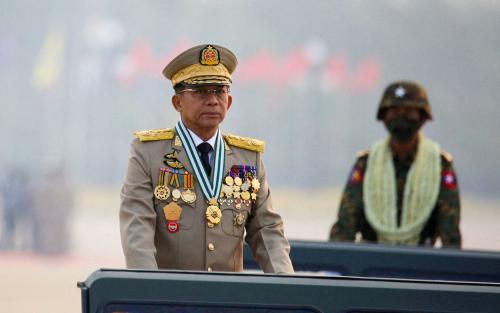
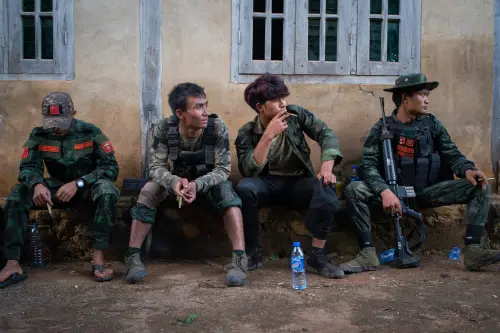
Commentary
Myanmar’s crisis tests ASEAN
August 27, 2021